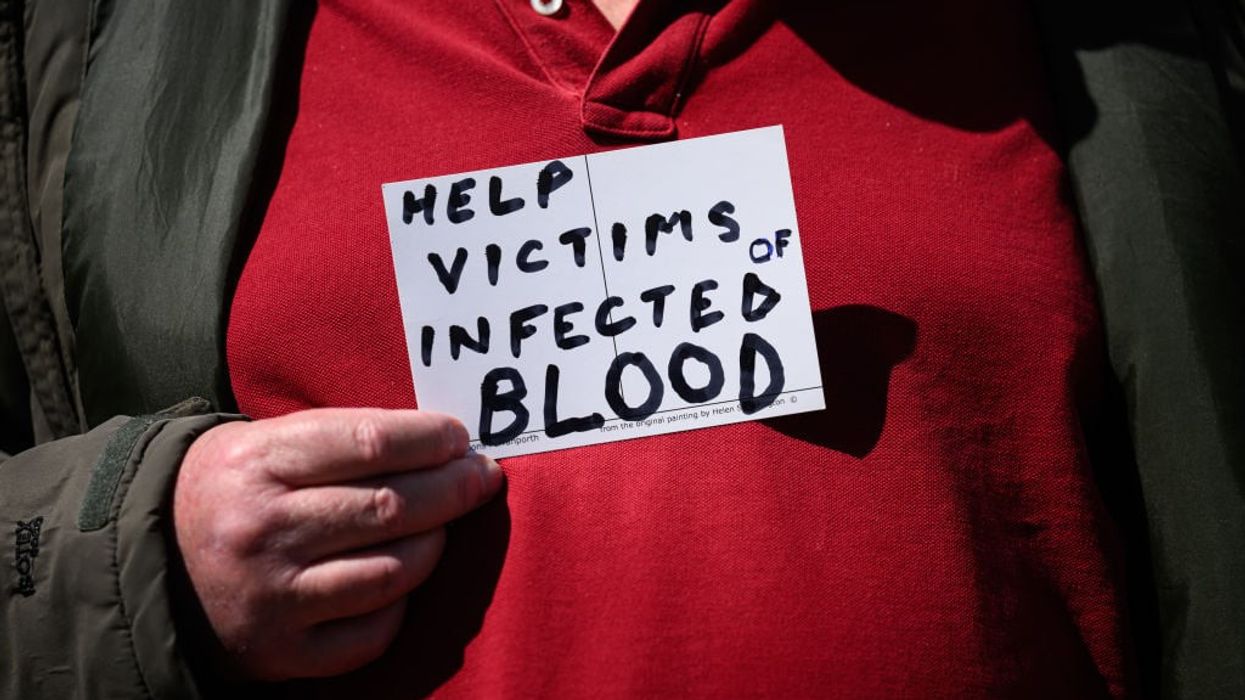FAMILIES who lost loved ones in the NHS infected blood scandal can now apply for £100,000 interim payments, a move the government hopes will acknowledge the impact of one of the NHS's most tragic healthcare failures.
This interim compensation is available to parents, children, spouses, and siblings of those who died after contracting HIV and hepatitis C from contaminated blood products supplied by the NHS in the 1970s and 1980s, reported the Telegraph.
This is the first time the estates of deceased victims have been eligible for government compensation related to the scandal.
The government expects to begin rolling out full payments, managed by the Infected Blood Compensation Authority, in 2025. This follows a years-long fight for justice by victims and campaigners, who have consistently called for accountability and financial support for those affected.
The Infected Blood Inquiry, established in 2017, revealed a “chilling” cover-up, criticising how the NHS and government departments withheld the truth about the dangers of infected blood transfusions.
Concluded in May, the inquiry underscored the extensive suffering of more than 30,000 patients infected with hepatitis C, HIV, and other serious viruses through NHS blood products.
Despite the interim payments, some affected families are expressing frustration with what they describe as a complex and burdensome application process.
Des Collins, senior partner at Collins Solicitors, which represents around 2,000 impacted individuals, voiced concern that many clients will experience “bitter disappointment” once they realise the application’s practical difficulties.
“Their struggle for financial recognition and justice will go on, despite the government claiming that long-promised compensation is now a reality," Collins was quoted as saying.
Surviving victims of the scandal have already received interim payments, with eligible individuals awarded between £100,000 and £210,000. Those affected are entitled to pursue further compensation, with some payments expected to reach up to £2.7 million, particularly for individuals co-infected with both hepatitis C and HIV.
Full compensation is anticipated to start reaching surviving victims by the end of this year.
The scandal affected some of the UK’s most vulnerable patients, including around 1,250 people with haemophilia who were treated with contaminated blood products and nearly 380 children who contracted both viruses.
For some families, this interim payment marks the first formal recognition from any government of the loss they suffered, according to Kate Burt, CEO of the Haemophilia Society.
She expressed relief over the interim payments but highlighted unresolved issues around payment structure and eligibility that she believes could undermine the programme's credibility.
Nick Thomas-Symonds, the Paymaster-General and minister for the Cabinet Office, described the interim payouts as a significant milestone in delivering long-overdue justice to affected families. He affirmed the government's commitment to implementing the Infected Blood Inquiry’s recommendations, even while acknowledging that no compensation could entirely heal the suffering caused.
“No amount of compensation can fully address the suffering as a result of this scandal, but we are doing everything possible to deliver life-changing sums to people infected and affected," he said.





